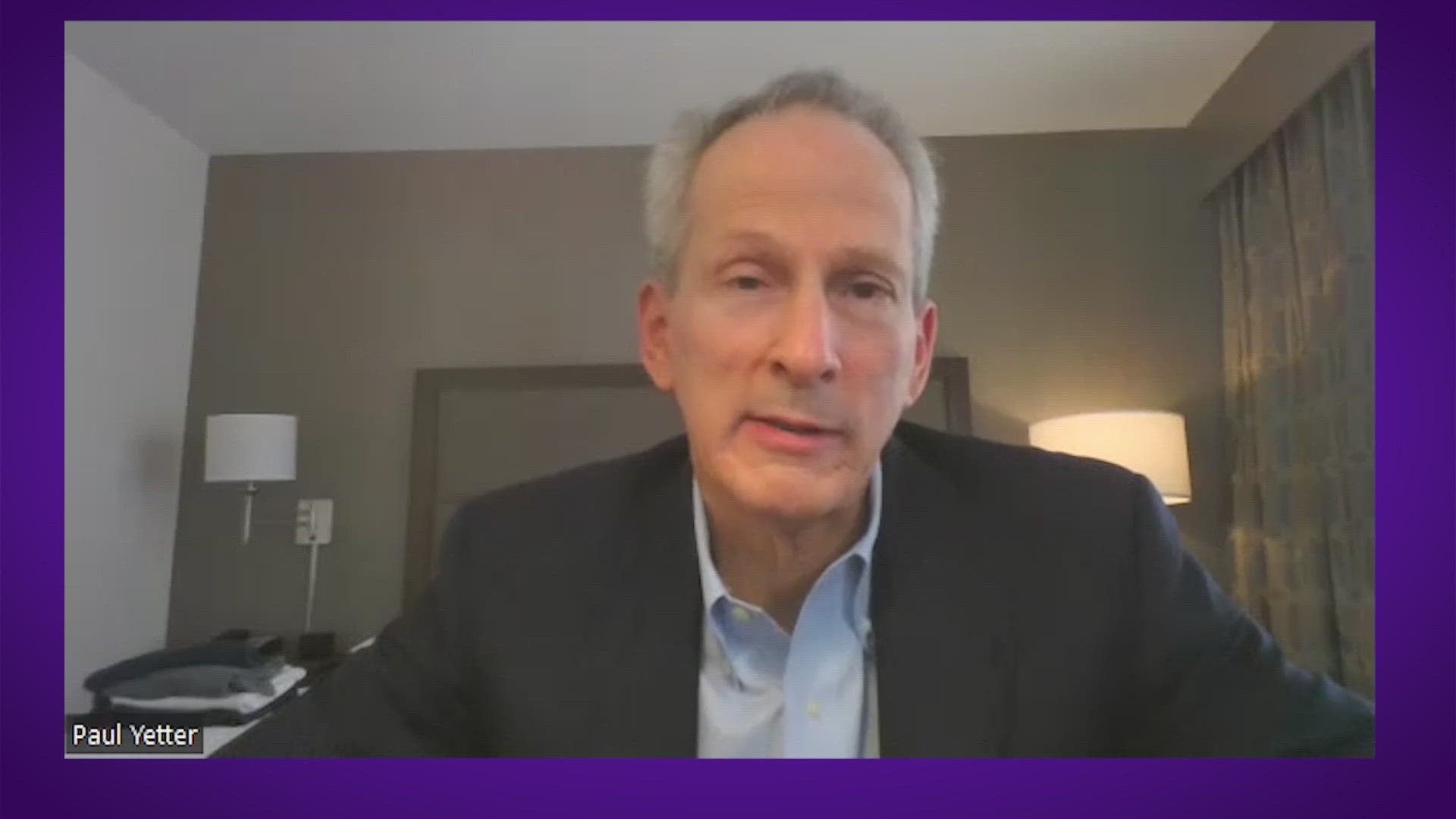TEXAS, USA — Paul Yetter did not build a career in child welfare. His "day job", as he puts it, is business litigation. However, when Yetter Coleman, his Houston-based boutique law firm, went looking for a cause to donate its expertise to 15 years ago; there was a clear and obvious need.
"We went looking in the state, talking to stakeholder about what needs to fixed, and it was absolutely universal," Yetter said. "The childcare system in the State of Texas, this was 15 years ago, was broken. It had been broken for decades, and it was the same problems over and and over again.
Yetter said his firm sought out experts in the child welfare space and collaborated with another large law firm in Texas and, in 2011, brought a class action lawsuit against the State of Texas with claims that the state's foster care system was failing to protect children in its custody from harm.
The defendants in the case are Gov. Greg Abbott, the Department of Family and Protective Services (DFPS) and the Texas Health and Human Services Commission (HHSC), with the departments' commissioners named specifically.
The plaintiffs, Yetter said, are the more than 9,000 children who are identified as "PMC children" or Permanent Managing Conservatorship, meaning they are deemed to be "permanent" foster care children based on how long they have been in the system.
"These are the children on which the system is the most abusive and hard, and we are representing them," Yetter said.
After the lawsuit was filed in 2011, it went to trial in 2014.
In 2015, U.S. District Judge Janis Jack ruled that the state's foster care system was unconstitutional because it left children worse off than they were when they were taken in to state custody.
The state attempted to appeal Judge Jack's ruling, but in 2018 the Fifth Circuit upheld important parts of the ruling and directed the state to follow remedial orders for Judge Jack to improve foster care in the state.
In 2019, Judge Jack appointed two monitors to lead teams to supervise the system and make sure the state was adhering to directives in a number of areas of improvement.
Those monitors began creating comprehensive reports of their findings and presenting them in hearings twice a year in 2020.
Since Judge Jack gave her remedial orders, she has found the state to be in contempt of court twice for not meeting standards to protect children in its care.
This week, a hearing was held for the judge to determine if she will find the state in contempt for a third time. This week's hearing centered on issues revealed in the monitors' reports, specifically surrounding over-prescribing psychiatric drugs to children, failing to properly investigate claims of abuse and neglect and dangerous outcomes for children without placement or "CWOP".
“We’ve seen some progress and we’re proud of that. We’re proud of the state for doing that, but the system is far from being fixed. The evidence was absolutely clear about that," Yetter said.
This week's testimony included stories from a young woman who aged out of foster care in October. She testified she was prescribed at least seven medications that made her slow and tired. She said she missed school regularly.
Another witness, who is an attorney representing children who have been in CWOP, said one of her clients was being sex trafficked in the hotel where the state placed her.
“They come in traumatized and they leave, as the court has found, worse so often," Yetter said.
The state's attorneys prepared a list of almost two witnesses to testify in this week's hearing but after hearing all of the plaintiffs' witness testimony, only called one. They also did not give any closing remarks.
“They told us and the court that they were going to prove all sorts of mitigating circumstances and all sorts of compliance and good faith and attempts to fix things, and they didn’t do any of that," Yetter said.
The attorney who conducted a majority of the state's cross-examination and who questioned the state's sole witness, Prerak Shah did not respond to an email request for an interview for this story.
DFPS and HHSC both declined to give an interview or a statement.
Earlier this year, in January, Judge Jack threatened to hold the state in contempt of court if the state did not bring the number of CWOP children to zero by June. Following that hearing, WFAA spoke with DFPS Commissioner Stephanie Muth outside of the courthouse.
"As you know, children without placements are something the department has been working on and struggling with, so we are working to have new options for placements for children in our care," Muth said.
But when asked if the department could find placements for all of its children in six months, Muth said she could not commit to that.
"There’s a lack of placements. It’s a placement of last resort at this point. There’s a number of reasons why, so we have to tackle this from a number of different angles," Muth said.
When asked what her message is for the thousands of children who are under the state's legal guardianship, Muth said this:
“They deserve a safe and loving home, and that is what we are working for in the state. It is an ambitious goal, but it’s what we are working for for every single child in the state."
Yetter said he expects Judge Jack's decision in this week's contempt hearing to come in a matter of weeks.
For him, the fight stays the same.
“When we started 12 years ago, it was a different generation of children and it will continue to change, but at some point the system needs to be made safe, and that’s who we’re fighting for," Yetter said.

